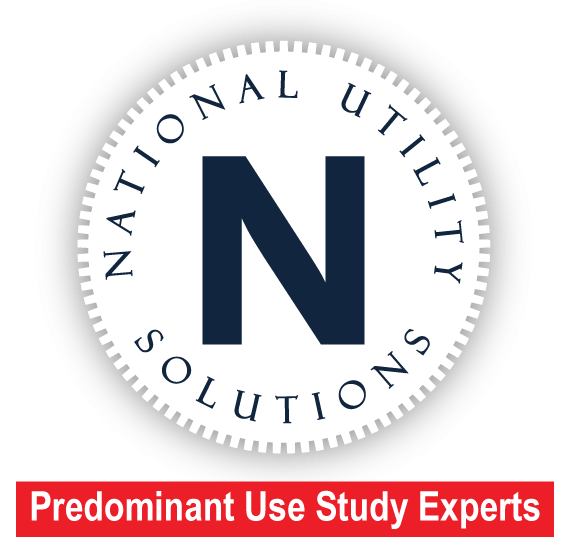
Predominant Use Studies are required in Maryland for the electricity and natural gas sales tax exemption and refund.
For meters where proof, via a predominant use study, that more than 50% of the electricity and/or natural gas is used in qualified processes, we can remove and recover up to 48 months of sales taxes paid in error. Our Maryland predominant use studies account for all power draw including the exempt and taxable usage. We also balance our studies with a 12-month history and have our PE (professional engineer) certify the predominant use studies to ensure the studies are not biased and accurate to within .5% tolerance. We handle the compiling, processing, and filing of the required paperwork to ensure you get the exemption and refund. The defense of our predominant use studies with State Agencies is included at no additional cost to ensure our clients keep their exemptions and refunds. We never charge anything for the meters that do not qualify.
For our clients’ added protection, we have money back guarantee backed with a $1,000,000 Professional (errors and omissions) insurance policy in addition to a $2,000,000 General Liability policy.
For many industries in Maryland, a predominant use study will provide a significant utility sales tax savings.
If you have any questions, visit our frequently asked questions page or contact us for a no-obligation consultation.
MARYLAND
Predominant use (51% or more of utility used in manufacturing allows for
100% exemption).
Study required.
http://www.comp.state.md.us/
Production Exemptions (from Comptroller of Maryland) |
||
| The Maryland sales and use tax does not apply to sales of machinery and equipment used in production activities, sales of tangible personal property for consumption in production activities, or sales of tangible personal property for resale or incorporation as a material or part of other tangible personal property produced for sale.
The Tangible Personal Property Used or Consumed in a Production Activity citations are from COMAR 03.06.01.32-2 and COMAR 03.06.01.24. Exempt activities Tax-exempt production activities include:
Servicing, maintaining, or repairing tangible personal property other than production machinery or equipment, or providing for the health and comfort of employees are not production activities. Exempt items Tax-exempt items include:
“Direct” and “predominant” use Tangible personal property is considered to be used “directly” when the use of the property is integral and essential to the production activity; the use occurs where the production activity is carried on and occurs during the production activity. The property is considered to be used “predominantly” when the property is used directly in production activities more than 50 percent of the time. Lease payments Lease payments of production activity equipment also qualify for the exemption. If machinery or equipment is used both in a production activity and administrative, managerial, sales or any other non-operational activity, the exemption applies if it is used at least 50 percent of the time in a production activity. Food preparation by restaurants and food retailers Generally, food processed for sale by grocery stores, bakeries and other food retailers does not qualify for exemption. However, there is a specific exemption for the sale of equipment to be used by a retail food vendor to manufacture or process bread or bakery goods for resale. To qualify for the exemption, the vendor must operate a substantial grocery or market business (as defined in Section 11-206(a) of the Tax-General Article) at the same location where the food is sold. The taxable price of each piece of exempt equipment must be at least $2,000. Utilities and fuel Sales of utilities and fuel qualify for exemption under the same terms as other consumables. However, the use of these items in operating administrative, commercial and storage facilities and in providing plant heating and air conditioning is not exempt. When utilities are sold through a single meter for both taxable and exempt uses, taxability is controlled by majority usage. The taxability of oil and coal is also controlled by majority usage where it is impractical to segregate qualifying and non-qualifying usage. To claim the exemption for utilities and fuel, contact Taxpayer Service to obtain Form ST206 and send the completed form to the vendor. Research and development The sales tax does not apply to purchases of tangible personal property for use or consumption in research and development. Research and development means basic and applied research in the sciences and engineering and the design, development and governmentally mandated pre-market testing of prototypes and processes. Market research, research in the social sciences or psychology, and other nontechnical activities, routine product testing, sales services or technical and nontechnical services are not included. No special forms are required to claim the research and development exemption. If entitlement to exemption is not evident from the documents of sale, the vendor should obtain a certificate from the purchaser stating that the property will qualify. Resale and incorporation exclusions Vendors may not recognize the resale and incorporation exclusions unless you provide them with a resale certificate with a signed statement that the purchases are for resale and including the buyer’s name, address and Maryland sales and use tax registration number. For more information on the use of resale certificates, contact Taxpayer Service and request Business Tax Tip #4, If you Make Purchases for Resale. Printing industry The sales tax does not apply to the sale of photographic materials used to produce an item (such as a photographic plate) used in composing, printing or producing another item used in printing. Sales of artwork, electrodes, electrotypes, composition, litho-graphic plates or negatives, mats, photo engravings, stereotypes or typographies for direct use by a person engaged in printing tangible personal property for sale are also exempt. A person selling the items, other than those that are photographic in nature, must pay the tax on all materials used to produce them. A printer who produces these items for self use also must pay tax on all materials. Claim procedure No special forms are needed to claim the machinery and consumable exemptions, other than Form ST206 for utilities and fuel. If a vendor requires documentation to support a claim for the machinery exemption, a signed form certifying use in production activities may be provided. The consumables exclusion may be supported by a statement in the form of a resale certificate stating that the property will qualify. |
